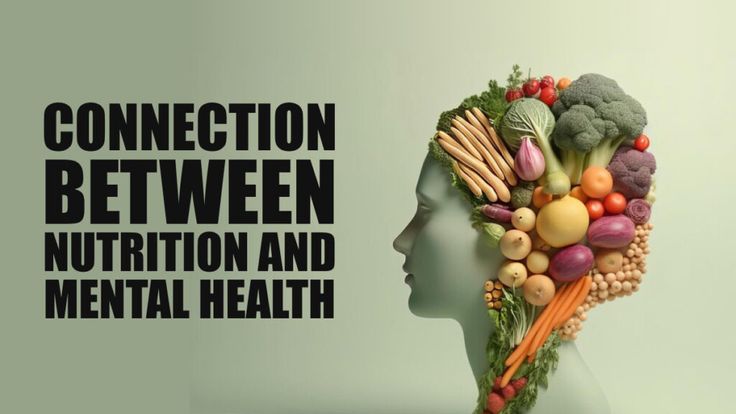In a world where diet choices are often made based on taste, tradition, or convenience, few people consider the profound connection between what we eat and how we feel mentally. While non-vegetarian food is widely consumed for its protein and nutrient content, emerging research and ancient wisdom alike suggest that a meat-heavy diet might be harming your mental health more than you realize.
In this blog, we’ll explore how non-vegetarian food can negatively impact your mental health, mood, emotions, and overall psychological well-being.

🧠 Understanding the Mind-Food Connection
The gut and brain are closely connected through what is known as the gut-brain axis. Whatever we eat doesn’t just affect our body — it directly influences our brain chemistry. The gut microbiota plays a crucial role in producing neurotransmitters like serotonin, dopamine, and GABA, which regulate mood, anxiety, and cognitive function.
A diet rich in plant-based food tends to support a healthier microbiome. In contrast, high intake of meat, especially red and processed meat, can cause inflammation, hormonal imbalance, and oxidative stress, all of which can lead to mental health disorders like anxiety and depression.
🥩 H2: The Psychological Effects of Consuming Meat
1. Increased Risk of Depression and Anxiety
Numerous studies have linked heavy meat consumption with a higher risk of depression and anxiety. The saturated fats and cholesterol present in red meat can lead to inflammation in the brain, which has been associated with depressive symptoms.
A 2012 study published in Nutrition Journal found that vegetarians report better moods and lower anxiety levels compared to meat-eaters. Meat-based diets may interfere with serotonin production, a key neurotransmitter responsible for happiness and mood regulation.
2. Toxins and Stress Hormones in Animal Flesh
When animals are slaughtered, they often experience fear, stress, and pain, which causes the release of stress hormones like cortisol and adrenaline. These chemicals remain in the meat even after cooking and are consumed unknowingly.
These stress hormones can disrupt human hormonal balance, increasing feelings of irritability, anger, and emotional instability. Over time, they can contribute to mood swings, aggression, and chronic anxiety.

🧪 H2: Inflammatory Properties of Non-Vegetarian Diets
1. Chronic Inflammation and Mental Illness
Red and processed meats are known to be pro-inflammatory foods. Chronic inflammation has been linked to a higher risk of neurodegenerative diseases, brain fog, fatigue, and depression.
Research published in the journal Psychiatry Research shows that people with depression often have elevated levels of inflammatory markers in their blood. Meat-heavy diets may trigger these inflammatory responses and worsen mental health conditions over time.
2. Impact on Gut Health
A healthy gut is crucial for a balanced mind. Meat lacks the fiber necessary to support beneficial gut bacteria, which are essential for producing mood-enhancing neurotransmitters. Processed meats can lead to an imbalance in gut flora, contributing to leaky gut syndrome, inflammation, and even autoimmune reactions, all of which affect mood and mental clarity.

🥚 H2: Ethical and Emotional Impact of Eating Animals
1. Guilt and Emotional Disconnect
Some people subconsciously experience emotional distress or guilt after consuming meat, especially if they are aware of the ethical issues surrounding factory farming and animal cruelty. This emotional conflict can lead to mental discomfort, unease, and cognitive dissonance, particularly among sensitive individuals.
2. Empathy and Compassion
According to psychological studies, individuals who consume less meat tend to score higher on empathy and emotional intelligence scales. A plant-based lifestyle promotes compassion, mindfulness, and emotional balance, while a meat-heavy diet may dull emotional sensitivity and increase aggressive tendencies.
🧬 H2: Hormonal Disruption and Brain Chemistry
1. Hormones in Meat and Mental Health
Many animals raised for consumption are given growth hormones and antibiotics, which can end up in the food chain. These foreign hormones can disrupt human endocrine function, leading to mood disorders, irritability, sleep disturbances, and cognitive issues.
Hormonal imbalances are closely tied to conditions like depression, anxiety, and bipolar disorder. Consuming hormone-laden meat regularly can throw your body’s natural balance off, leading to long-term mental health concerns.
2. Omega-6 Fatty Acids and Imbalance
Non-veg food, especially red meat, is rich in omega-6 fatty acids, which, when not balanced with omega-3s, can contribute to inflammation and cognitive decline. A typical Western diet high in meat consumption leads to an unhealthy omega-6 to omega-3 ratio, exacerbating mental health conditions.
🧘 H2: Spiritual and Energetic Effects of Eating Meat
1. Ancient Wisdom and Vibrational Food
Ancient Indian and Eastern philosophies regard food not just as sustenance but as energy. Non-vegetarian food is considered “Tamasic” in Ayurveda — dulling, heavy, and spiritually degrading. It is said to cloud the mind, reduce clarity, and promote lethargy, aggression, and fear.
In contrast, vegetarian or “Sattvic” foods promote clarity, calmness, and positivity — all vital for mental and spiritual wellness.
2. Vibrational Frequency and Mood
Everything we consume carries a vibration. Meat, especially from animals that suffered, is believed to carry a low, negative vibrational frequency. Consuming it can affect our mental state, spiritual energy, and aura, making us more susceptible to fear, depression, and low emotional states.
🍗 H2: Real-Life Testimonials and Case Studies
1. Mental Clarity After Going Vegetarian
Many individuals report dramatic improvements in mood, clarity, and emotional stability after switching to a vegetarian or vegan diet. Famous personalities like Albert Einstein, Leo Tolstoy, and Virat Kohli have embraced plant-based diets, citing benefits that go beyond physical health.
Several participants in wellness programs and yoga retreats often mention how cutting out meat leads to improved concentration, less anger, and better sleep — all signs of improved mental health.
2. Clinical Support
Clinical psychologist Dr. Neal Barnard and organizations like the Physicians Committee for Responsible Medicine (PCRM) advocate for plant-based diets as part of mental health therapy. They have found that vegetarian diets are linked to reduced depression scores, better stress management, and higher life satisfaction.
🥦 H2: Healthier Alternatives to Boost Mental Wellness
1. Plant-Based Proteins
You don’t need meat for protein. Foods like lentils, tofu, tempeh, beans, quinoa, and nuts are rich in protein without the harmful side effects. They also contain fiber, antioxidants, and mood-enhancing vitamins.
2. Omega-3 Rich Plant Foods
Chia seeds, flaxseeds, walnuts, and seaweed are excellent plant sources of omega-3 fatty acids, which support brain health, memory, and emotional resilience.
3. Fermented Foods for Gut-Brain Health
Fermented plant-based foods like kimchi, sauerkraut, miso, and kombucha support healthy gut flora, which is key to serotonin production and stable mood.
📉 H2: Reducing Meat for Better Mental Health – Practical Tips
1. Go Meatless on Specific Days
Start with initiatives like Meatless Mondays or try going vegetarian for one week each month to observe the difference in your mood and energy levels.
2. Mindful Eating
Pay attention to how you feel after eating meat vs. plant-based meals. Keep a mood journal to identify patterns.
3. Educate Yourself
Watch documentaries like What the Health, Forks Over Knives, and The Game Changers to learn more about the mental and physical benefits of a meat-free diet.
🌱 H2: Final Thoughts — Choose Food That Nurtures Mind and Soul
While food choices are deeply personal and cultural, it’s important to recognize that non-vegetarian diets may be doing more harm to your mental health than you realize. From inflammation and hormone disruption to emotional imbalance and spiritual disconnection, the risks are real and growing.
Transitioning to a plant-based lifestyle can significantly improve your mood, emotional resilience, mental clarity, and spiritual well-being. It’s not just about avoiding disease; it’s about cultivating peace, purpose, and positivity from within.
🔍 H2: Frequently Asked Questions (FAQs)
Q1. Can meat really cause depression?
Yes. Research shows a strong correlation between meat consumption and depression, largely due to inflammation, poor gut health, and hormone disruption.
Q2. What are the best vegetarian foods for mental health?
Leafy greens, berries, nuts, seeds, legumes, fermented foods, and whole grains are excellent for mental clarity and mood stabilization.
Q3. Is it enough to reduce meat, or should I go fully vegetarian?
Even reducing meat consumption can have significant mental benefits. However, a completely plant-based diet may yield more dramatic improvements over time.
If you care about your peace of mind, start with your plate. Your brain will thank you.